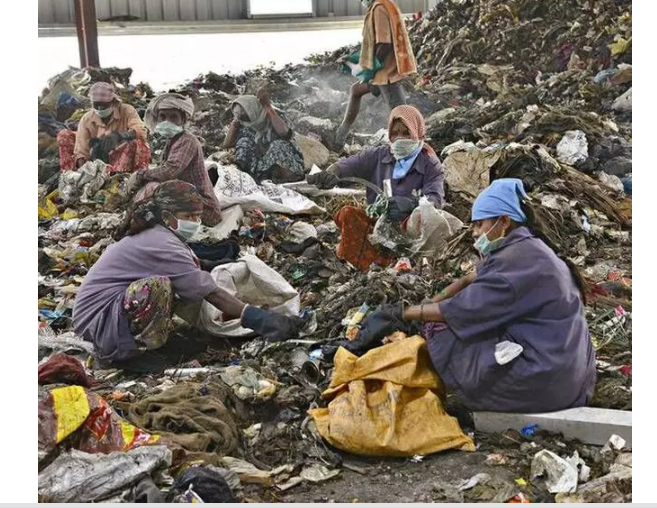The world is staring at a humongous waste management crisis today. The only practical solution is to create a model that can address one issue with it. Experts have suggested that informal recyclers or waste pickers have a pivotal role to play. A report published under the Economic Justice by the Zero Waste World has recommended partnering with the waste pickers or the “Informal Recyclers” to achieve the social, environmental, and economic benefits, leading to an inclusive economic recovery the world is in such a need.
The potential of informal recyclers as a sector has become the cornerstone of recycling in Global South cities. Many local governments are challenged by urban poverty. Involving the waste pickers to promote zero-waste systems reduces waste and unemployment and creates more social and environmental welfare. Two Indian cities have been able to understand the possibilities that waste pickers can bring into force.
Bengaluru based Hasiru Dala Innovations provide waste collection and environmental education services to 30,000 households, with a source separation rate of 90% and diverting from landfills 80% of what they collect. Their employees earn double to triple their previous income. It had employed 200 former waste pickers. The wastage volume in Bengaluru is 304 jobs per 10,000 annual tonnes. This is a huge number because Bengaluru is all set to become the country’s waste of capital.
In Pune, the SWaCH cooperative employs 3500 waste pickers, servicing over 840,000 households. It collects almost 400,000 tonnes of waste annually in collaboration with Pune Municipal Corporation. The door-to-door collected waste is segregated and recycled, aiming towards zero waste management. As per the estimates, the waste pickers in India recycle 54% of all recycled glass, 34-45% of all recycled plastic, and 28-50% of all recycled cardboard and mixed paper. Notably, including informal recyclers and the zero waste systems give advance results in:
•Quantifiable savings in waste management and reduced social help costs.
•Better environmental outcomes by extending the life of disposal sites and reducing greenhouse gases.
•Greater economic and social justice for an essential percentage of the population performing an essential service.
•A robust foundation upon which governments can dynamically transition towards a zero-waste future. Some facts about waste pickers from across the world:
•Between 12.6 & 56 million people work in the informal recycling sector •Accounting for 19% of municipal budgets on average; waste management is the single most considerable expense of most municipalities in the Global South.
•The percentage of waste that is disposed of instead of usefully recycled or composted reaches up to 96% in Latin America and the Caribbean, 93% in Sub-Saharan Africa, and 79% in South Asia.
•Recycling rates achieved by the informal sector range from 20 to 50% in China, Pakistan, India, and the Philippines; informal recyclers collect 90% of what it recycles in Brazil and 80 to 90% of post-consumer packaging and paper recovered in South Africa.
•The job creation potential for inclusive recycling systems to be, on average, 321 jobs per 10,000 tonnes per year of recyclables.
The statistics speak for themselves. What remains to be seen is the implementation of an idea involving waste pickers.

